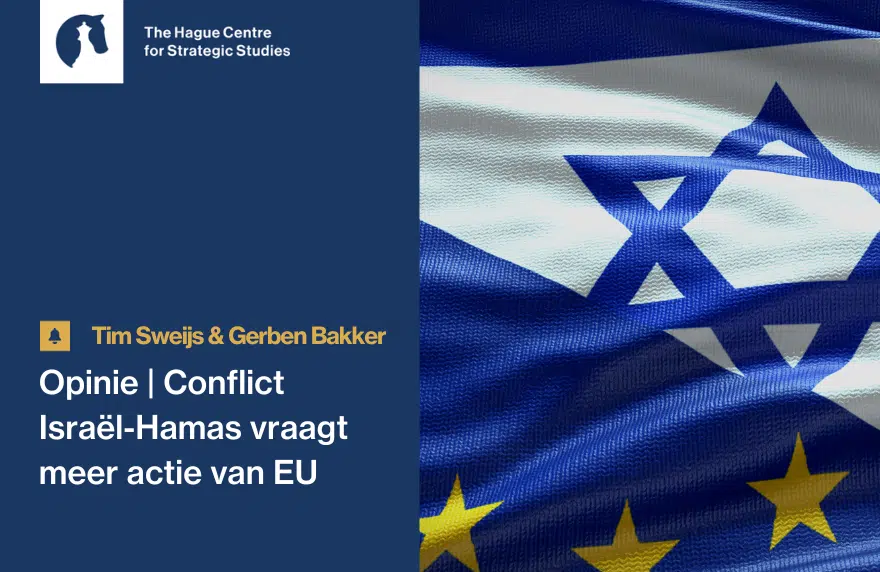Although limited and largely symbolic in scope, the Dutch decision to support the strike by the US and UK on Houthi targets inside Yemen was nonetheless politically important and charged, writes HCSS Strategic Advisor MENA security Saskia van Genugten in an article for Middle East Institute.
When the United States and the United Kingdom decided to strike Houthi targets inside Yemen to stop the group from launching attacks on commercial shipping in the Red Sea, most European allies did not want to get involved in the operation. The sole exception was the Netherlands, which grabbed the opportunity to step forward and show its willingness to provide not only political but also military support, albeit largely symbolic. Its government echoed the idea that such “surgical” strikes would have a de-escalatory effect and degrade the Houthis’ strike capacity. Moreover, it deployed “one staff officer” to provide “non-operational military support” to the US-British mission.
Although limited in scope, the Dutch decision was nonetheless politically important and charged. Indeed, last week, in The Hague, while Israel was defending its Gaza offensive in a courtroom of the International Court of Justice (ICJ), elsewhere in that same city, the Dutch government was explaining its decision to back the anti-Houthi strikes and, in particular, its failure to inform the Dutch parliament in any way beforehand.
Lawmakers found the omission questionable at best, especially given that outgoing Prime Minister Mark Rutte is currently heading a caretaker (demissionary) cabinet after his coalition government collapsed in July 2023 and the four ruling parties were soundly defeated in snap general elections the following November. Ever since, a growing number of caretaker ministers have already found themselves new jobs, including former Dutch Minister of Finance Sigrid Kaag, recently appointed the United Nations’ senior humanitarian and reconstruction coordinator for Gaza.
Despite the political bickering over the demissionary cabinet’s decision-making around the anti-Houthi strikes, the incoming government, which is still being negotiated, will likely provide even stronger support for the US approach in the Middle East region, as well as for Israel. With Rutte leaving the stage, one of the driving forces in Dutch politics will be far-right politician Geert Wilders, the big winner of last year’s elections. He is potentially the most outspoken Dutch politician advocating for Israel’s right of defense, combining this with an overarching anti-Islam agenda, in whatever form or shape it comes.
That said, there is general approval in the Netherlands for the country to back the US’s efforts to protect freedom of navigation in critical waterways such as the Red Sea. Central to this disposition is the importance for the Dutch economy of the port of Rotterdam, Europe’s largest seaport. In the top five of the world’s best-connected ports (together with Antwerp, Shanghai, Ningbo, and Qingdao), Rotterdam is highly important for the supply and transit of crude oil to Europe from the Middle East and elsewhere. And since the outbreak of full-scale war in Ukraine, the Netherlands has increased its reliance on liquified natural gas (LNG) from the Gulf states, Qatar in particular, to stay warm in winter. The Red Sea, which links to the Mediterranean basin and the wider Atlantic via the Suez Canal, is a vital transit corridor for these and other commodities destined for Rotterdam.
But beyond the economic logic, the Dutch caretaker prime minister has also depicted his government’s support for the US and the UK as a “matter of principle.” His reference is to the claim the Netherlands, and the city of The Hague in particular, has to being an advocate of international law and justice. At the same time, it has not escaped notice by many that Rutte’s own candidacy for the position of secretary-general of the North Atlantic Treaty Organization (NATO) might have factored into his decision. For most of his rule, Rutte, who has served as prime minister of the Netherlands since 2010, has kept the Dutch Ministry of Defense underfunded; and until now, he made few efforts to ensure the Netherlands lived up to the definition of being a good NATO ally, whether on paper or in practice.
It remains to be seen if the Dutch decision to support the strikes against the Houthis will contribute to the most important regional objective: de-escalation. Most European Union member states have contested the premise of this argument. So, while some other European NATO allies could be convinced to provide political support for the strikes, many others, including larger states such as France, Italy, and Spain, rejected this course of action outright. Their fear is that attacks over Yemen will actually deteriorate the security situation in the greater region and drag external powers into a further escalation and metastasizing of the conflict between Israel and Hamas. Paris, Rome, and Madrid are instead focusing on setting up their own EU naval operation in the Red Sea — though they do not expect this mission to be launched until the end of February at the earliest.
This is illustrative of the sense that the US is finding it increasingly difficult to keep its European allies aligned with its global stance and current approach to the Middle East region. When it comes to the conflict between Hamas and Israel, most Europeans feel stuck between the proverbial rock and hard place: supporting Israel’s right to defend itself on the one hand and advocating for the universality of human rights and international law on the other. While the war in Ukraine had a uniting effect, the Israeli-Palestinian conflict divides politicians and society alike pretty much everywhere in Europe — perhaps with German politicians as the exception confirming the rule.
The coalition negotiations for a new Dutch government, potentially led by Geert Wilders, are still ongoing, and a lot of question marks remain with regard to its foreign policy priorities. But when it comes to the current conflict between Israel and Hamas, and dealing with its regional spillovers, one can expect the pro-US, pro-Israel line to continue. At the same time, at least one thing is clear: The Dutch focus on protecting freedom of navigation and commercial shipping goes beyond a “matter of principle,” as serious national economic interests are also at stake.
This article by Saskia van Genugten was originally published by the Middle East Institute on January 18, 2024.







